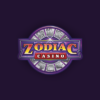In recent years, Europe has seen significant changes in online gambling regulations. Just fifteen years ago, most European countries lacked specific rules for online gambling or operated under exclusive state-owned monopolies.
Today, the landscape has shifted dramatically. A recent analysis by the European Gaming and Betting Association (EGBA) reveals that the multi-licensing model has become the prevailing regulatory approach in Europe. This model allows multiple companies to offer online gambling services within a country, provided they adhere to strict regulatory requirements. This shift has also led to the rise of EU online casinos, which are now a major part of the online gambling market in Europe.
EU online casinos offer a wide range of casino games, including slots, live dealer games, and specialty options. The variety and quality of game selection play a crucial role in attracting European players.
Key findings from the analysis include:
- 27 out of 31 European countries have embraced some form of multi-licensing, indicating a strong trend towards open and competitive markets.
- Four countries—Finland, Iceland, Norway, and Luxembourg—do not have multi-licensing. They either maintain exclusive state-owned monopolies or lack dedicated regulations for online gambling.
- Among the 27 countries with multi-licensing, 23 have a comprehensive multi-licensing model covering all regulated online gambling products.
- Four countries have a mixed model with partial multi-licensing, such as Slovenia and Switzerland, which have a monopoly on online sports betting.
- Cyprus and France have product-specific prohibitions but allow multi-licensing for other regulated online gambling products.
- Finland is undergoing legislative reforms and is expected to establish a multi-licensing framework for online gambling by 2026.
The Malta Gaming Authority plays a crucial role in regulating EU online casinos, ensuring they operate fairly and provide quick payouts. Similarly, the Curacao Gaming Authority is significant in the online gambling industry, offering licenses to many online casinos that prioritize trust, fair play, and fast payouts, even without a European license.
Comparison with Other Regions
In the realm of online gambling regulation, comparing Europe’s multi-licensing model with regulatory frameworks in other regions like North America and Asia sheds light on the diverse approaches taken by different jurisdictions, particularly in the context of european online casinos. While each region has its unique regulatory landscape, there are notable similarities and differences that impact the online gambling industry.
Online casinos in Europe offer significant advantages in terms of regulation and player benefits, including robust licensing, safe payment methods, attractive bonuses, and the reputation of being trusted online casinos.
The United Kingdom Gambling Commission plays a crucial role in regulating online casinos targeting the UK market, enforcing strict regulations and supervision to maintain high standards of operation, ensuring the trustworthiness and reliability of these platforms.
Europe’s Multi-Licensing Model for European Online Casinos
Europe has witnessed a shift towards multi-licensing, where multiple operators are permitted to offer online gambling services within a country. This approach fosters competition, consumer choice, and innovation in the market, making it easier for players to access the best European online casinos that offer favorable terms, diverse game offerings, generous bonuses, and fast payouts. Regulatory frameworks in European countries often prioritize consumer protection, responsible gambling measures, and anti-money laundering controls. However, there is variation among European countries in terms of licensing requirements, taxation rates, and enforcement mechanisms.
When looking for the best online casino sites, players should consider factors such as fast payouts, high-quality games, and welcome bonus offers to find the best online casinos. It is crucial to choose licensed and reputable online casino sites in Europe to ensure a safe and enjoyable gaming experience.
For example, StarVegas Casino has received positive reviews for its variety of games and solid customer support. Additionally, European online casinos offer a wide range of live casino games, including roulette, blackjack, and poker, providing an authentic and immersive experience with real dealers via live feed.
North America’s Online Gambling Regulatory Landscape
In North America, online gambling regulations vary significantly between states and provinces. While some jurisdictions, such as New Jersey and Nevada in the United States, have embraced online gambling with a multi-licensing approach, others maintain strict prohibitions or limited regulatory frameworks. The legalization of online gambling in certain states has led to economic benefits, job creation, and increased tax revenues. However, challenges remain in achieving regulatory consistency and addressing concerns related to problem gambling and underage access.
Asia’s Regulatory Diversity
Asia presents a diverse regulatory landscape for online gambling, with a mix of prohibition, legalization, and regulation in different countries. While some jurisdictions, like the Philippines and Macau, have established regulatory frameworks for online gambling, others maintain strict bans or limited access to licensed operators. Cultural attitudes towards gambling, religious considerations, and concerns about social harms influence regulatory approaches in Asian countries. In some cases, illegal or unregulated online gambling activities persist despite government efforts to curb them.
Key Similarities and Differences: Role of the Malta Gaming Authority
Across regions, regulatory frameworks for online gambling share common objectives of protecting consumers, preventing crime, and promoting responsible gambling practices. However, differences in legal traditions, political landscapes, and societal attitudes towards gambling shape the design and implementation of regulations. European casinos online must be licensed by reputable bodies, follow jurisdiction guidelines, and provide fast payouts to ensure a safe and fair gaming environment.
For instance, Tipico Casino review has received positive reviews for its seamless gaming experience and compliance with European regulatory standards, offering players both safety and entertainment. Similarly, VulkanVegas Casino review has earned a solid reputation for its diverse game offerings and adherence to responsible gambling practices.
The UK Gambling Commission plays a crucial role in regulating online casinos targeting the UK market, enforcing strict regulations and supervision to maintain high standards of operation.
While Europe’s multi-licensing model emphasizes competition and market access, North America and Asia exhibit greater regulatory diversity and experimentation.
Effects on the Industry
The regulatory environment significantly impacts the online gambling industry’s growth, profitability, and sustainability, especially for European casino players. A balanced regulatory framework that strikes the right balance between consumer protection and market competitiveness is essential for fostering a thriving online gambling ecosystem. Regulatory uncertainty, inconsistent enforcement, and divergent approaches between regions can create challenges for operators seeking to navigate global markets. Moreover, regulatory changes and geopolitical developments in one region can have ripple effects on the industry worldwide. Online casinos legal in Europe are strictly regulated to ensure player safety.
Free spins are a significant part of welcome bonuses and loyalty programs in European online casinos, providing players with additional opportunities to enjoy slot games and enhance their gaming experience.
Conclusion
In conclusion, comparing Europe’s multi-licensing model with online gambling regulations in North America and Asia highlights the complexity and diversity of regulatory approaches in different regions. Understanding the similarities and differences in regulatory frameworks is crucial for stakeholders in the online gambling industry to navigate evolving legal landscapes, seize opportunities, and mitigate risks.





















